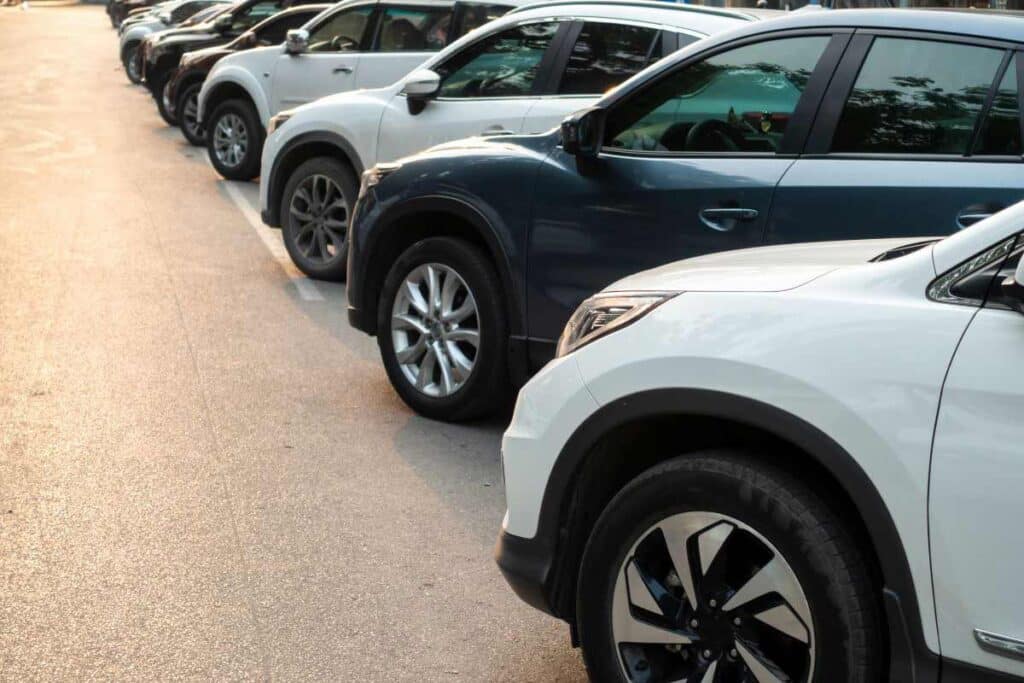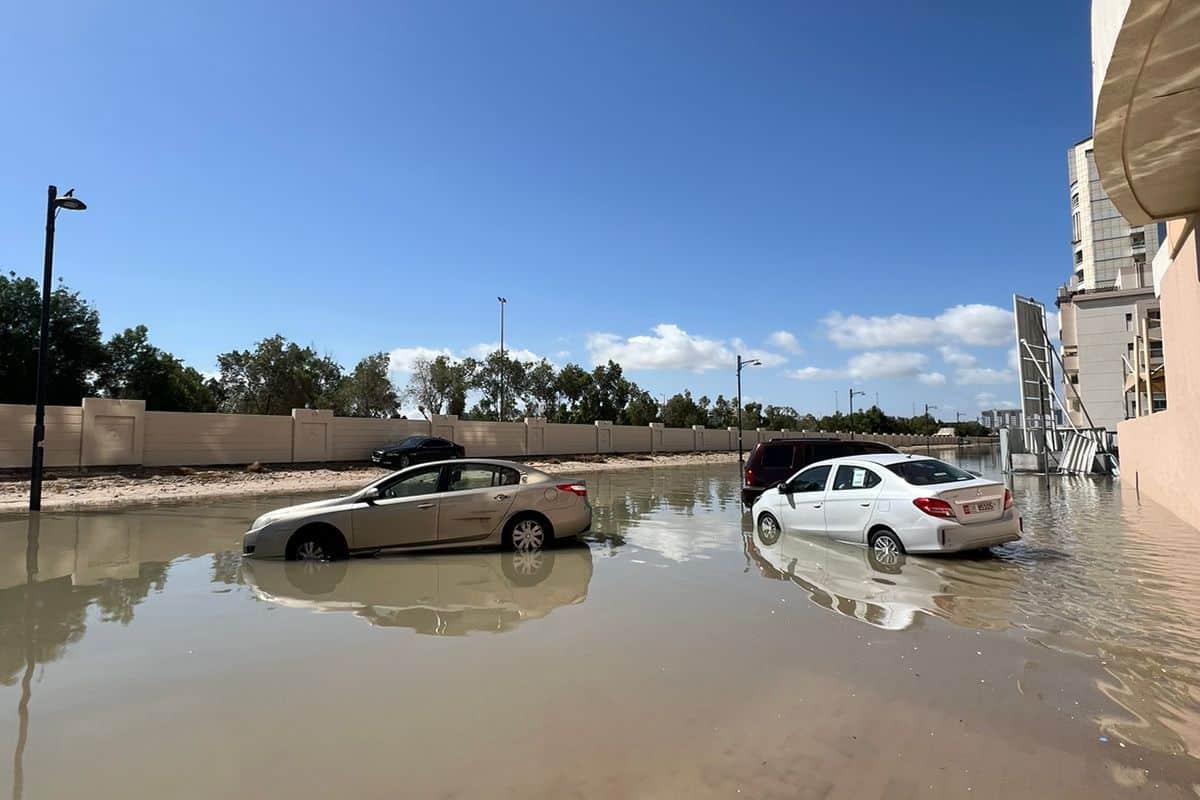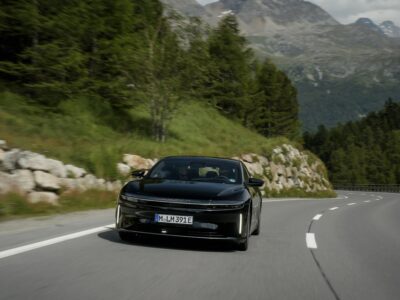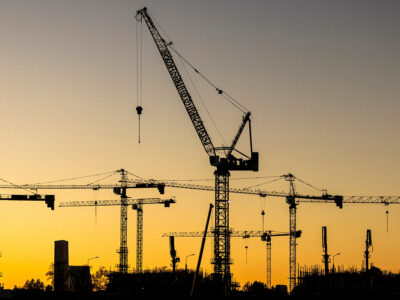Dubai’s booming car auction market is offering expatriates a path to substantial second incomes, with some reporting profits of up to 50 per cent per vehicle as the sector experiences rapid growth across the United Arab Emirates.
The number of car auction companies operating in the UAE has risen to nearly 20, according to industry insiders, with daily auctions now a common feature in Dubai and neighbouring Sharjah.
“With the power of social media, the last sort of three years is what I would say is when a lot more people have gotten exposed to this concept of, ‘Hey, maybe I can have passive income by going and buying and selling in the auctions,'” Zubair Rashidi, Executive Director at Marhaba Auctions, told Arabian Business.
Marhaba Auctions, founded in 2018, conducts daily auctions handling up to 7,000 vehicles monthly through four branches across Dubai and Sharjah, using a hybrid model that combines physical and online bidding.
Significant returns
Mohamed Moaty, a 42-year-old flight attendant who began investing in auction cars in 2009, told Arabian Business he typically makes “10 per cent minimum up to 50 per cent net profit” on vehicles purchased at auction.
The supplementary income has transformed his lifestyle and has enabled him to purchase luxury items he once considered beyond reach.
“Big difference. I never thought I’d buy a Rolex, but I bought my first one and a Patek Philippe is on the way,” Moaty said.
For Ihab Salem, 46, the venture began by chance when a friend invited him to an auction. He now reports earning between AED35,000 and 50,000 ($9,530-$13,615) per car, primarily from auctions in Sharjah.
“There are many auction houses in Dubai and Sharjah, but I mostly go to Sharjah,” Salem explained. “Each auction has specific days, and different companies run them. They don’t overlap—there’s an unspoken agreement between them to hold their auctions on separate days.”

Market challenges
Despite the potential for high returns, participants face considerable risks. Salem cautions that vehicles at auction often have hidden problems that may only become apparent after purchase.
“One of the biggest challenges is that, despite testing the car before buying, you can still end up with serious issues that only become apparent later,” he said. “Auctions sell cars that have been written off—whether due to accidents, flooding, or other reasons—so buyers need to be aware that they’re getting vehicles in poor condition.”
Salem recounted an instance where repair costs exceeded a vehicle’s value, forcing him to sell at a loss.
“Sometimes, you don’t discover hidden damage until after purchase, and repairs can end up costing more than the car itself. This happened to me once. I bought a car, fixed it up, and later realised it had major issues that weren’t obvious in the first or second test. In the end, I had to sell it at a loss,” he said.
The April 2024 floods that swept through parts of the UAE created both opportunities and difficulties for the auction market, according to Rashidi.
“The flood last year had both a positive and a negative impact on the auction market,” he said. “On one hand, those that lost their cars were looking to get a replacement car for their business or personal use, and they came to the auctions.”
Marhaba Auction responded to the disaster by offering financial incentives to affected residents. “We published a press release to support the communities and we offered up to AED10,000 cash back on any purchase for all UAE residents for the flooded car,” Rashidi added.
However, misconceptions about auction houses selling flood-damaged vehicles affected overall sales, Rashidi noted and emphasised that Marhaba Auction does not accept flood-damaged cars.
Increasing competition presents another hurdle for those in the business. “Biggest problems nowadays is competitors, a lot of freelancers car traders in the market which make it harder but it still possible,” said Moaty.

Industry growth
The UAE’s auction sector has grown significantly since its beginnings in 1997, with a second wave of growth following the 2008 recession, according to Rashidi.
“The first car auctions in the UAE actually began in 1997. The second wave was after the recession in 2008 when a few others entered the market,” he explained. “Marhaba auction was founded in 2018 and our concept was slightly different as a hybrid auction.”
This hybrid model, combining traditional in-person bidding with online participation, has helped fuel the sector’s expansion. “We conducted live on-site auctions that are also then broadcasted online, where bidders could buy cars through our website or application as well,” Rashidi said.
Major players in the market include Emirates Auction, Copart UAE, and Dubai Auto Auction operated by the Roads and Transport Authority (RTA), alongside smaller operations like Sama Cars Auction and Nojoom Cars Auction in Sharjah.
The country’s reputation as an automotive hub has contributed to the sector’s expansion. RM Sotheby’s held its first-ever Dubai auction in 2024, with high-end sales including a 2009 Mercedes-Benz SLR McLaren Stirling Moss for AED11.8 million and a 2023 Aston Martin Valkyrie Coupé for AED11.3 million.
“Everyone sort of knows the UAE for being very popular for the automotive industry, right, from Dubai Police with the fancy cars to supercar clubs,” said Rashidi. “The UAE residents have so many different options available in the market from Japanese back to European, Korean, American, Canadian through dealerships and used car markets, online classifieds, and then auctions.”

Advice for newcomers
For newcomers considering entering the market, Salem recommends thorough preparation. “Visit a few auctions first. Talk to experienced buyers, observe the process, and learn how inspections are done.”
He, however, highlighted the speculative nature of the business. “At the end of the day, it’s a gamble — the more experience you have, the better you’ll be at spotting good deals and minimising losses.”
Not all participants treat car flipping as a primary business. “For me, this is just a hobby, not a business. I don’t consider myself a trader—I do it for fun,” Salem said.
“Some people do this full-time, selling cars in nearby countries like Syria and Iraq. Occasionally, I’ll buy a car, use it for a while, fix it up, and then sell it.”
Rashidi describes the auction experience as highly engaging. “It’s all about the vibe. It’s all about that live auction atmosphere, the bid-catchers, the speed of the auctioneer, people raising their paddles to bid, and the excitement on their faces when they win the car as the highest bidder. It’s really a very lively scene to be in.”









